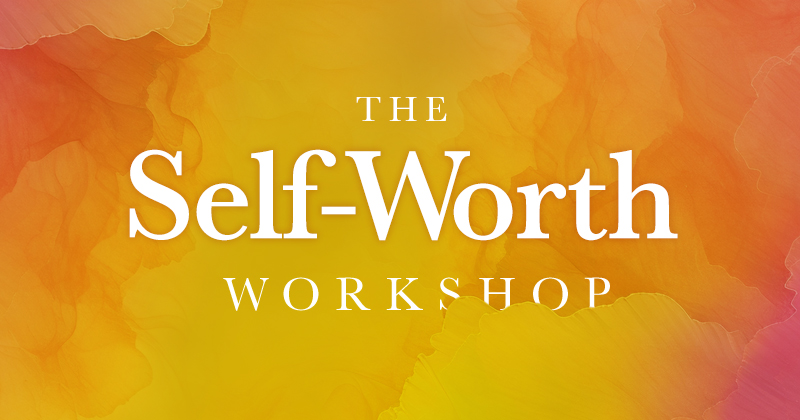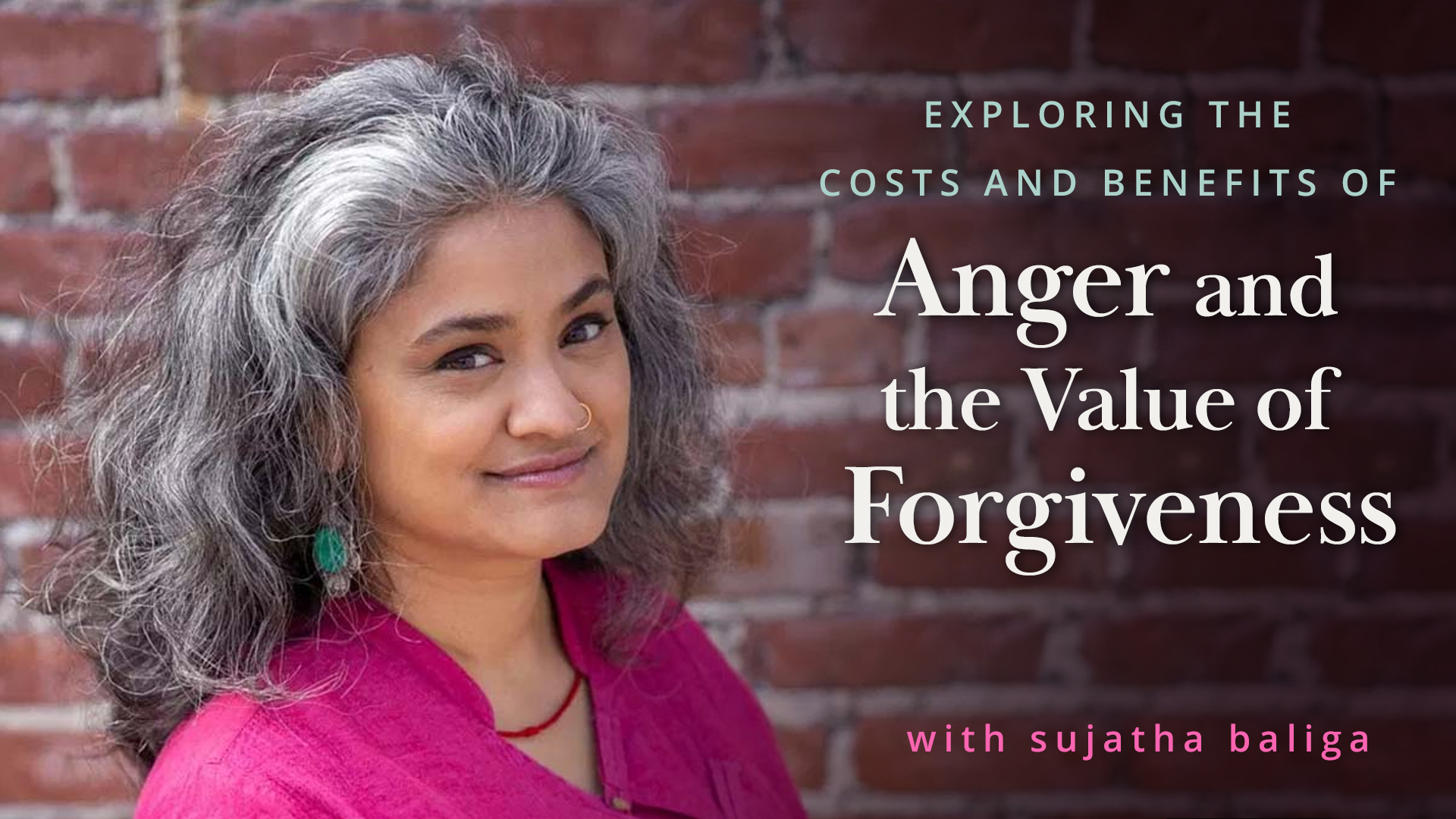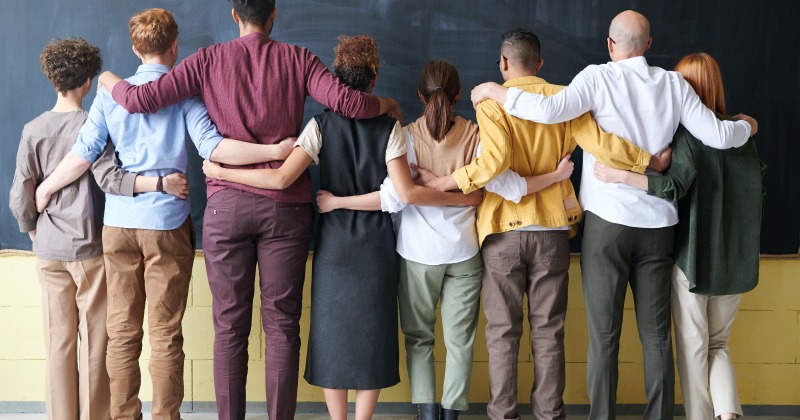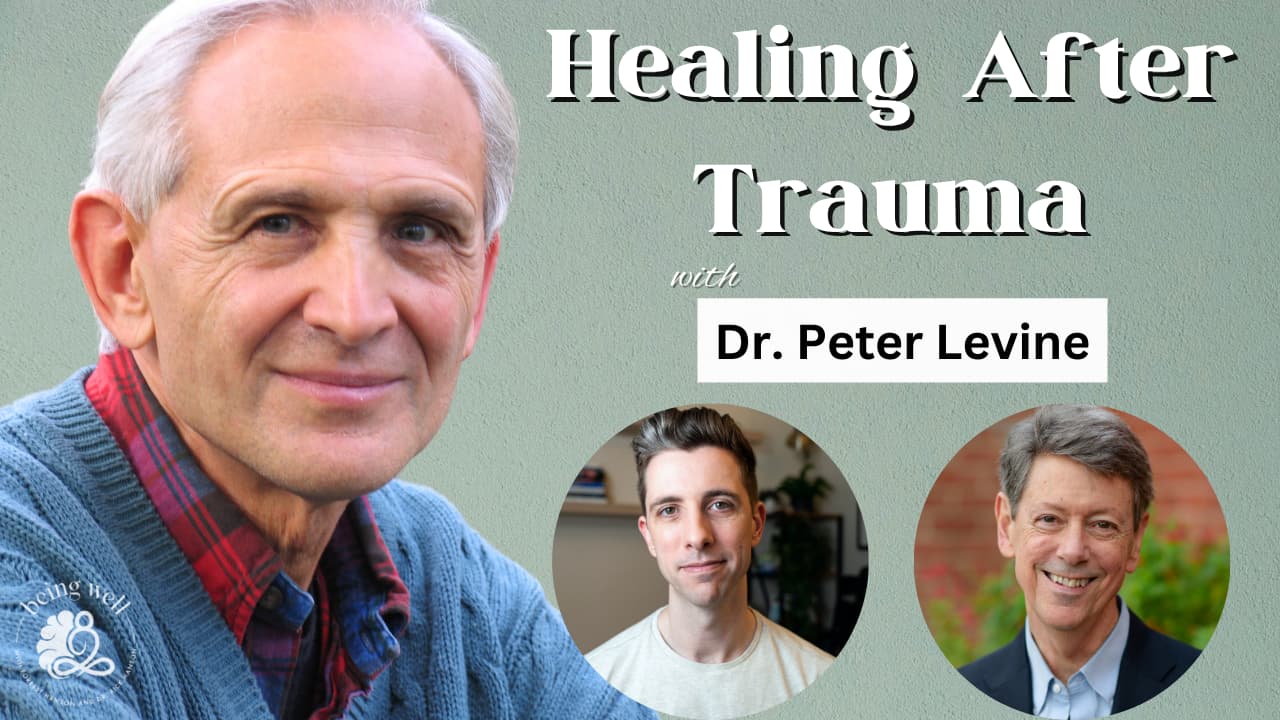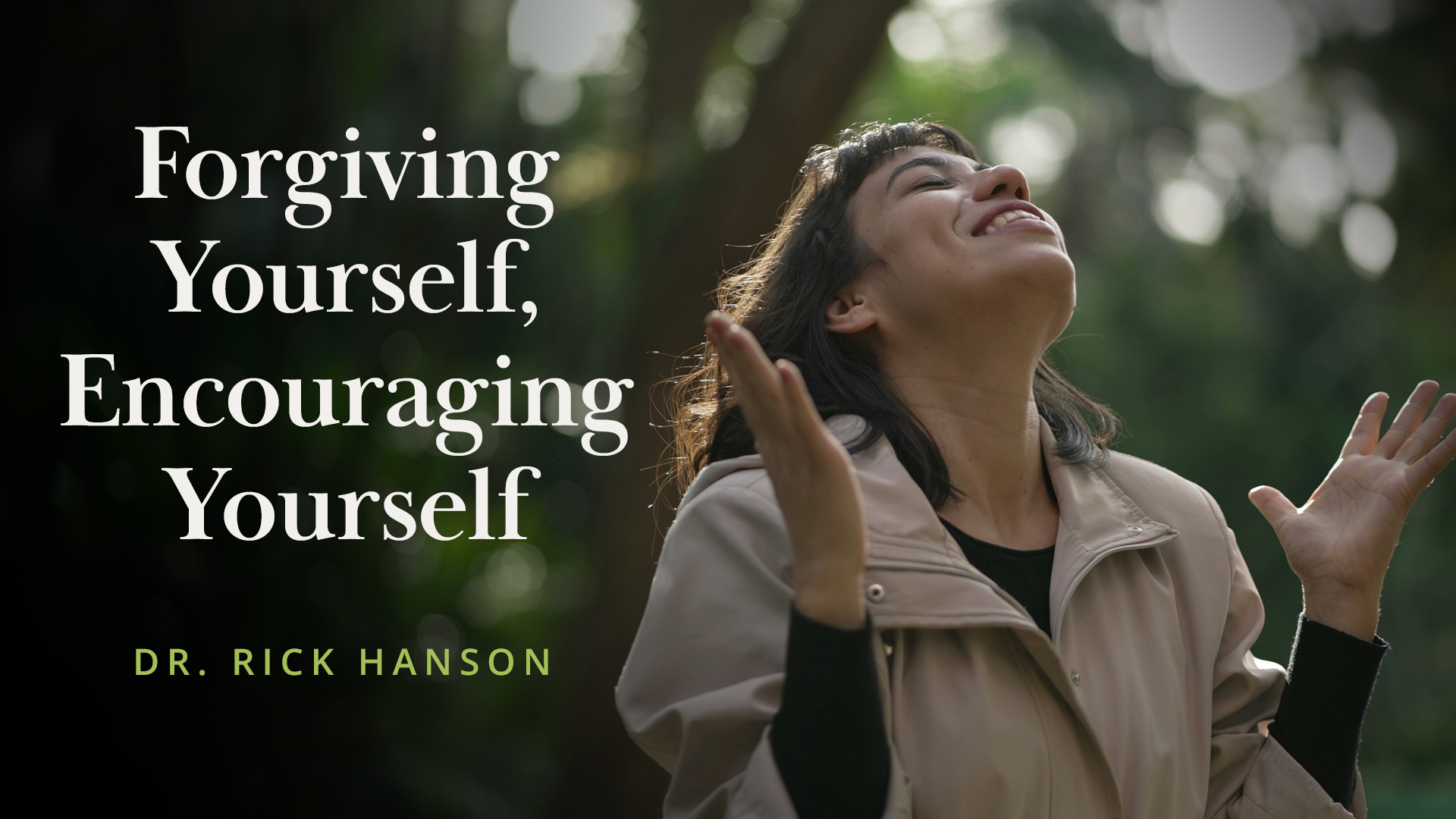Note: This is the third article in a 4-part series on Virtuous Conduct as the Foundation of All Happiness that also includes:
- Part 1: Do’s and Don’ts of Virtuous Conduct
- Part 2: Not Harming by Not Externalizing Costs With Special Reference to the Climate Crisis
- Part 4: The Three Foundations of Healthy Groups From Families to Nations
You can also watch the video of this teaching, and do the guided meditation that accompanies it.
What is it that leads to happiness and away from suffering, for ourselves and others?
For the last two weeks, I’ve been exploring this question, first with the do’s and don’ts of virtuous conduct, and second with not harming others by not externalizing talks, with a special reference to the climate crisis.
And now I would like to explore the covid pandemic (or plague) from the perspective of virtuous conduct – and particularly in terms of not harming others by externalizing our costs upon them. This is a very very charged topic for many people. I strongly encourage you to stay focused on your own practice with your own mindstream, and not get caught up in the mindstreams of others. I also encourage you to keep this at the level of personal behavior and practice, and not get into questions of public policy here, the history of the past couple of years, the various political parties, or the details of public health messaging.
I will occasionally state certain things as a matter of fact. My sources include widely available information in scientific journals, the consensus views of most scientists, physicians, and public health officials, and summaries of all this in high-level news sources such as Reuters or the New York Times. I am not going to get into arguments about the views of a tiny minority of scientists, physicians, or public health experts.
Plague Dukkha
“Dukkha” is the Pali term for what the Buddha points to in his First Noble Truth, the truth of dukkha . . . typically translated as suffering, but better understood more broadly as including stressfulness, unsatisfactoriness, disappointment, frustration, contraction, friction, and plain ol’ unhappiness.
Since the covid pandemic – I’ll use the simple word “covid” for what we’ve been dealing with – began spreading in late 2019, it’s brought a lot of dukkha. Slowing down to acknowledge this suffering in ourselves, and in others, is important in its own right – and a necessary foundation for considering virtuous conduct.
In America, covid has killed at least 850,000 people so far – we’re currently (in mid-January) averaging about 1,800 additional deaths each day – and over 5.5 million worldwide. These numbers are probably low-end estimates because of issues with record-keeping and the desires of some governments to suppress the numbers of covid deaths in their country. Additionally, the covid pandemic has indirectly led to many other deaths by clogging healthcare systems and leading people to defer needed treatments.
In addition to the deaths, other physical health dukkha from covid include hospitalizations, long covid – affecting about 10% of the people who get covid, sometimes in extremely debilitating ways – or a few days or weeks of what feels like a horrible flu.
Tangibly, there is the financial dukkha – typically landing hardest on the most vulnerable people – of layoffs or other sources of lost wages and income.
Emotionally, there is the dukkha from SO many sources, such as:
- Having loved ones get sick and maybe die, or at least worrying about this for them. Including for vulnerable people such as the elderly or those with certain preexisting health conditions.
- Worrying about getting this illness yourself
- The stress of dealing with the standard public health measures used in plagues for centuries, notably social distancing and masks for a primarily airborne virus
- Being cooped up with children home from school or stuck at home working remotely
- Being unable to do the things you used to enjoy, and maybe which helped you maintain your emotional balance
- Getting angry with people who don’t see things the same way you do
- The sheer grind of this wearing on and on, particularly when we started to hope toward the end of 2021 that we were starting to see the light at the end of the tunnel . . . . which unfortunately turned out to be the Omicron Express rushing at us full speed.
YIKES.
The Buddha said in effect that it is ennobling to face the truth of dukkha. So let’s take a little time just to acknowledge how much dukkha you and others have suffered.
Whew . . . it’s been rough for almost everyone, one way or another, and really rough for many many people.
Challenges to Virtuous Conduct during a Plague
Now I’d like to focus on challenges to virtuous conduct during this plague – including challenges to simply thinking clearly about how not to harm oneself and others:
- The danger is usually invisible: we often don’t know if we are infectious or if someone else is.
- The risks aren’t clear-cut: some people get covid, in one strain or another, and hardly notice it; others acquire long-term health issues; many people die of it.
These risks are in turn affected by various factors, including the age of the person and co-morbidities such as being immunocompromised. Sometimes co-morbidities are not apparent in others or in oneself until they make a case of covid much worse.
In general, risks are hard to think about. They are the combination of probability and damage. Probabilities are . . . probabilistic, not either-or. It’s a matter of increasing or decreasing the likelihood of some kind of damage, not being a yes or a no. During a plague, what we must think about is rarely a yes or a no, but a matter of more or less.
Also, low probability events can still cause a lot of damage. For example, the probability of dying from covid is very low in children, yet it has still killed over a thousand kids in America alone.
In other words, the relevant facts are inherently uncertain, complex, and changing.
Then, making matters worse, there has been a tremendous amount of misinformation, disinformation, propaganda, and frankly bad faith bullshit in the past two years that has muddied the waters further. If a person gets their information mainly or entirely from highly selective and politically motivated sources that are not subject to review and fact-checking – or simply from the seemingly intelligent rants of Uncle Bob on Facebook – then they’ll be understandably confused, or plain wrong in their views.
Happily, it is really not hard to find out or confirm important facts in a few minutes on Google, ten minutes at most. As I have, you can turn to information from major university websites, Wikipedia, articles in scientific journals for a general audience, fact-checked publications like major newspapers, and major medical associations. Sure, it’s not perfect. No one is without some kind of bias, including me. Even with the best of intentions, some things always get left out. We’re in a plague and things are a matter of more or less. With a few minutes of effort, you can learn a lot more and make any confusion a lot less.
The costs of measures to reduce risks are often concrete and immediate and in your face . . . . . while their hoped-for benefits are in the future, and often in the form of something not happening – and absence rather than presence is hard to see. The harms we might pass along to others by infecting someone who infects someone else are often impossible to know. It’s difficult to stay motivated in this context.
Because we are vulnerable to this disease because we are highly connected to other people, we must work together to deal with it. And working together is challenging under the best of circumstances. It’s hard for any of us to recognize our interdependence – which is one of the central teachings of Buddhism, and one of the central tenets of standard public health.
Working together is especially challenging in cultures, such as in America, that prize hyper-individualism in general – and in which for the past 40 years there has been a sustained attack on the very notion of the common good.
On a related point, in a culture that prizes personal convenience and the rapid gratification of personal desires, it can feel like a particularly high price to pay to adjust or curtail your behavior to reduce potential harms to others.
It’s tiring to be still dealing with this after two very l-o-n-g years. People get exhausted and fed up. The costs of this plague to themselves – including the burdens of not harming others – are painfully obvious and have been steadily accumulating; the brain gets sensitized to stress and pain and increasingly reactive to it; there is a natural tunneling of vision when we are under chronic stress that brings the focus closer and closer to ourselves and away from others; so it becomes harder and harder to consider them and hold them in our heart.
In sum, we’ve got challenges!
Two Kinds of Harms
During a plague, there are two kinds of harms: to oneself and to others.
For example, getting covid is a harm to oneself, and a particularly serious harm for many of us. Not engaging in enjoyable or important activities is a harm to oneself. Wearing a mask, especially in certain situations, is a drag and can be experienced as a harm to oneself. Having a needle stuck in your arm is a harm to oneself. Side effects from a vaccination are a harm to oneself. We could list other harms to oneself during a plague. I’m not trying to evaluate which harms are the worst ones. People can disagree about how big a harm is or why it happens or how to avoid it, and I’m not going to try to resolve that here.
Harms to others include passing along the coronavirus to them: maybe they become asymptomatic . . . maybe they feel sick for a few days . . . maybe they get long covid . . . maybe they need to be hospitalized . . . maybe they die. Or maybe they pass along the virus they received to others . . . who pass it to others . . . who pass it to someone it kills. These are the simple facts of a highly contagious plague.
It harms others to burden doctors, nurses, and other healthcare workers – sometimes to the point of killing them with this disease. It harms others to overwhelm hospitals and other healthcare settings. It harms others to clog the healthcare system and block their access to medical treatment for other issues. It also harms others to close their workplace and put them out of a job. It harms children to keep them out of school. It harms teachers to open schools without adequate ventilation and other working conditions that would protect them from the covid passed along by highly infectious children. It harms people to close the gyms that were a major source of mental and physical health. It harms people to force them to wear a mask when they don’t want to. Lots of harms, and complicated ones.
We each make choices about risks of harms to ourselves. These are often complex choices, weighing different kinds of risks, some immediate and some long-term. These can be tough choices, and I’m not going to judge them or focus on them. Instead, I’m going now to focus on risks of harms to others – specifically, the harms of them getting covid.
Externalizing Costs during the COVID Plague
I’m focusing now on the virtuous conduct, the sila, of not giving covid to other people.
I understand reservations about vaccines, critiques of Big Pharma, mistrust of Big Medicine, and valuing of holistic health. I understand these because that’s how I see it, too.
I understand frustrations with evolving public health policies and confusing messaging, dislike of masks, and irritation at mandates. I feel the same way.
I get all that, and you can see what I’ve written about it here.
From the standpoint of virtuous conduct, there are people who do not want to wear a mask or get vaccinated for personal, sometimes health-based reasons – and who are also extremely careful about not infecting other people. The principle of not harming others is important to them, and they walk that talk.
Further, we must balance reducing harms to ourselves with reducing harms to others. There is no way around this. While taking others into account, a person could carefully decide to reduce a harm to oneself while knowing that it could increase potential harms to others. These are complex, difficult choices depending on very real situations, and I respect people who consider them thoughtfully while holding others in their heart.
And . . . . there are people who do not consider how their behavior could pass along covid to others. As best I can tell, some of these people basically don’t care. It’s not their problem.
But then their behavior creates problems for others. With a highly infectious and often serious disease, if someone doesn’t want to pay the “costs” of considering their impact on others and getting a bit informed about how covid is transmitted, then those costs are externalized onto others who now carry a higher risk of getting this disease.
If someone doesn’t want to pay the emotional and mental “cost” of compassion, recognizing our interdependence, and taking others into account, then the consequences of not paying those costs are pushed downstream onto others by making them more likely to get covid.
More specifically, there are people who don’t like the hassles etc. of social distancing and wearing a good mask in indoor settings that is properly fitted, not dangling below their nose. They don’t want to bear those “costs.” But since social distancing and wearing good masks in indoor settings clearly reduce the risks of transmitting covid – not perfectly, but still substantially (see this link) – anyone who does not want to pay that cost themselves transfers it to others in their now increased risk of getting covid.
Let’s pause for a moment and consider side by side the cost of wearing a mask next to the cost of getting covid. And remember that if your actions give someone covid, through that person you are probably also infecting numerous other people as well. Cost of wearing a mask . . . . . compared to the cost of getting covid since someone did not wear a mask. Hmm, how do they compare?
There are also people who do not want to be vaccinated against covid. As context, two things:
- Two shots plus a booster are highly effective against hospitalization and death. Over 100,000 Americans have died from covid in the past several months, almost all of them unvaccinated. Similarly, the people who have been hospitalized for covid are also almost entirely unvaccinated. Further, two shots plus a booster reduce the risk of getting and then transmitting this disease at all. It’s not perfect – there is no perfect during a plague – but this level of vaccination clearly reduces the spread of covid to others. Finally, even if someone has had a case of covid, also getting vaccinated reduces their risks of contracting covid again – particularly from a new variant such as Omicron – and transmitting it to others.
- Serious side effects of the vaccine do occur, but they are rare. For most people, the side effects of the vaccine are brief and mild. By comparison, the “side effects” of getting covid for unvaccinated people include serious risks of hospitalization and death – as well as the risks of passing along covid to others.
The reasons vary for not getting vaccinated. As I’ve said, some people have clear and understandable physical health vulnerabilities, and netting out multiple considerations they’ve chosen to accept the heightened risk of getting covid.
Other reasons include disliking shots, fear of doctors, anger at pharmaceutical companies making profits from vaccines, beliefs that we should just use “natural” treatments, anger at government officials telling us what to do, ideas that a conspiracy is hiding the true risks of vaccinations, and fears that Bill Gates has put nanoparticles in the vaccine.
Some say that we have decent treatments and that’s all that’s needed – setting aside the fact that there are typically periods before treatment when a person is infectious and often doesn’t know it.
There are notions that the RNA vaccines are not “real” vaccines because they work by tricking our cells into mimicking the spike protein on the outer shell of the covid virus – thus prompting the body to build up an immune response to it – rather than traditional vaccines like for smallpox that work by giving us a weakened form of a virus or other pathogen itself. Well, whatever you want to call these medicines, they have saved millions of lives worldwide.
For many people, their reason for not getting vaccinated boils down to a matter of allegiance to one political party and opposition to the other one.
And some people, for narrow selfish reasons of personal gain, have used their platforms to oppose or cast doubt on vaccinations while quietly making sure that they get all the up-to-date shots themselves.
I’m not going to try to respond here to these various reasons. As I mentioned, I’ve written about many of them elsewhere, and you can go to this link if you’re interested. I’ll just say that, other than significant health risks such as being immunocompromised, my opinion is that the purported reasons not to get vaccinated are in most cases minor, irrelevant, ignorant, ridiculous, or malicious.
The Key Question
I’ll just ask this question: For whatever reasons, if a person has chosen not to get fully vaccinated, what are they also doing to reduce their risks of giving covid to others?
That’s the key question. What are they doing to avoid harming others? What are they doing to avoid externalizing the costs of their personal choices onto others?
Anyone who tries to evade this question – whether by changing the subject or denying the science or attacking the messenger – is participating in harms to others.
Face the question! When various politicians or pundits advocate their preferred policy, it’s striking how often they leave out the risks to others of getting covid. It’s like they want to wave their hands and deny the very question of impacts on others. And downplay or pooh-pooh the very idea that we depend upon each other and have responsibilities to each other.
I am saying all this, which might already be so painfully familiar to you that you’re starting to tune out, to highlight the moral dimensions here and put them in the context of virtuous conduct, of non-harming, of not externalizing costs upon others.
For yourself, what is your own sila, your own virtuous conduct, during a plague? What is your care and concern about your impacts on others?
If you can appreciate your own virtuous conduct, the Buddha and others recommend that you find gladness in that.
On the other hand, if you see in yourself a lack of caring about others or simply a thoughtlessness about your impacts on others, the Buddha and other great teachers recommend that you feel some concern about that and commitment to a higher road.
When you consider your life these days and in the year to come, are there any adjustments related to the covid pandemic that make sense to you?
Further, what is your view, your moral clarity, about those who externalize the costs of not getting vaccinated and not wearing masks upon others?
The Big Picture
To finish, I’d like to mention again something I discussed in Part 2.
So many of the great issues of our time involve an overdue reckoning with externalized costs from the few upon the many.
Recognizing these harms and telling the truth about them to oneself and to others is an important step in reducing them, and thus an important aspect of your sila, your virtuous conduct, and your own psychospiritual practice.
This recognition can also have ripple effects in the wider world. The great positive developments of our time have come from this kind of moral clarity.
In my opinion, virtuous conduct expresses itself in doing what we can this year, personally and politically, to oppose the people and organizations who are, in effect, dumping their garbage in the street.
It’s OK to talk about this. It’s not a taboo, it’s not something we should leave out of our spiritual practice. For example, there are multiple accounts in the Buddhist tradition of deeply practiced individuals calmly confronting rulers with the harms they were doing to the common people.
As you may know, I focus almost entirely on the personal level of intervention. I’m going to continue to do so this year. But as we enter into 2022 – which in America and worldwide is shaping up to be a key turning point, for better or worse – it seemed appropriate to highlight the broader implications of virtuous conduct.
This is the third article in a 4-part series on Virtuous Conduct as the Foundation of All Happiness that also includes:
- Part 1: Do’s and Don’ts of Virtuous Conduct
- Part 2: Not Harming by Not Externalizing Costs With Special Reference to the Climate Crisis
- Part 4: The Three Foundations of Healthy Groups From Families to Nations
You can also watch the video of this teaching, and do the guided meditation that accompanies it.
